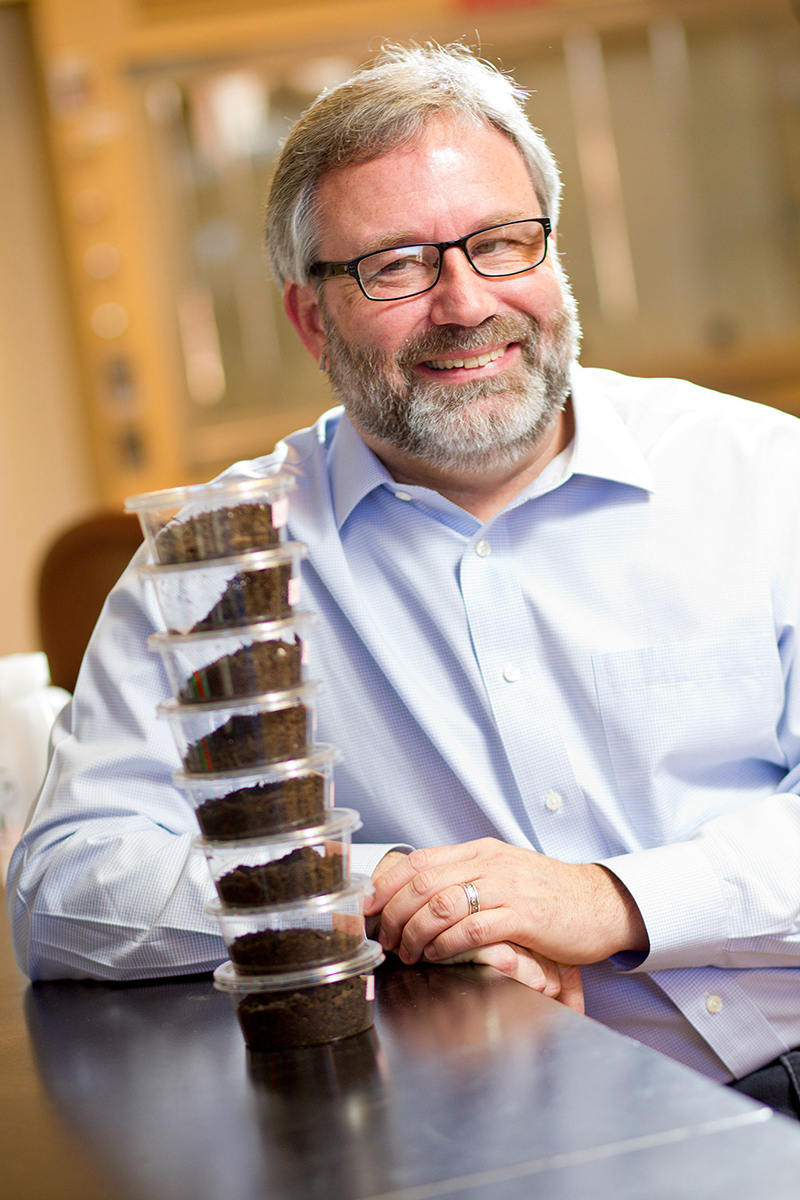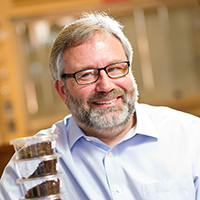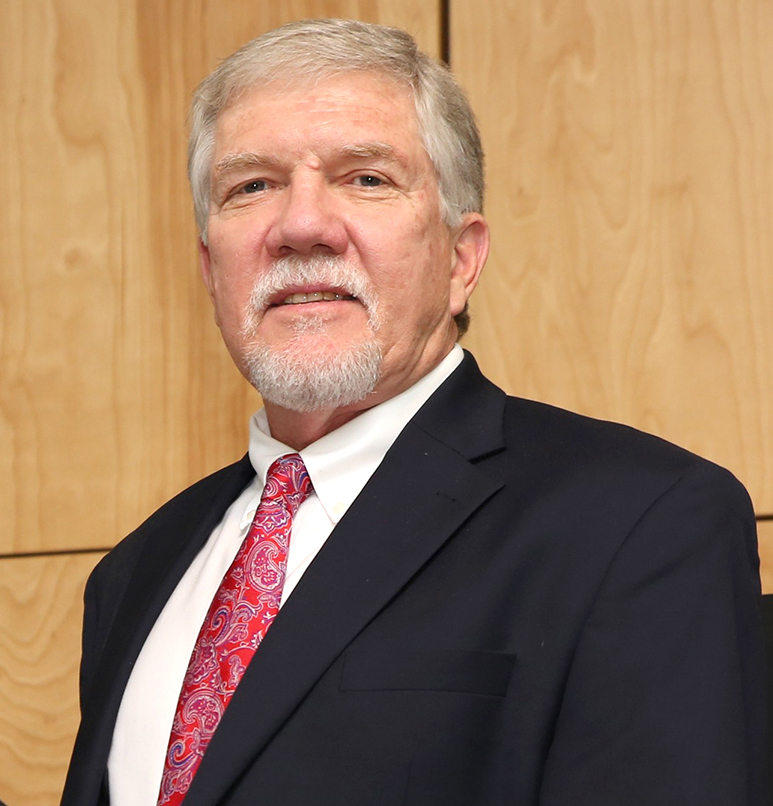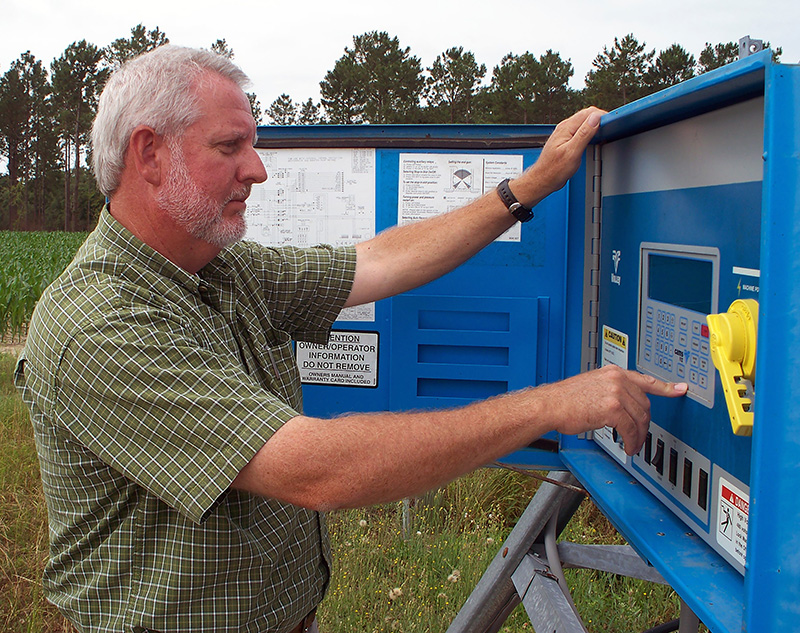The University of Georgia College of Agricultural and Environmental Sciences (CAES) has tapped Allen Moore, currently serving as the department head of the UGA Franklin College of Arts and Sciences Department of Genetics, to lead the college's research efforts as the CAES associate dean for research.
CAES Dean Sam Pardue announced the decision this week following a months-long national search.
“Dr. Moore brings a diverse background in genetics, ecology and entomology to our college research program,” Pardue said. “Adding his breadth of experience and perspective to our stellar faculty of researchers will help us continue on our trajectory of strong growth.”
Moore, a UGA Distinguished Research Professor, is an expert in evolutionary biology and behavior genetics; molecular and quantitative genetic studies of complex traits, especially social traits; and the development of behavior. He held various research and administrative positions in the biological sciences at the University of Manchester and the University of Exeter in the United Kingdom, and in entomology at the University of Kentucky.
Moore has a bachelor’s degree in zoology from Arizona State University and a doctorate in environmental, population and organismic biology from the University of Colorado. He was a National Science Foundation postdoctoral fellow in environmental biology at the Washington University School of Medicine in St. Louis’ Department of Anatomy and Neurobiology and a postdoctoral research associate in the Department of Cell Biology and Anatomy at the Northwestern University School of Medicine.
“I am delighted to join the College of Agricultural and Environmental Sciences,” Moore said. “The land-grant mission is one of the aspects that makes UGA unique among Georgia universities.”
UGA and Fort Valley State University are Georgia’s land-grant universities. They were established by the Morrill Acts of 1862 and 1890 to fulfill a mission of teaching agriculture, science, engineering and military science in addition to the classics. U.S. land-grant universities are home to the nation’s network of agricultural experiment stations, the Cooperative Extension Service System and 4-H youth development programs.
“This college has a rich history in cutting-edge agricultural research and is poised to continue that tradition of making a real difference in the years ahead,” Moore said. “ I am excited to be a part of these outstanding programs and look forward to working with this respected research faculty.”
Moore takes over on July 1 for Robert Shulstad, who has served as the college’s associate dean for research since 2006. During his tenure, Shulstad led the college’s efforts to consolidate and streamline farm and land holdings, recruit some of the brightest minds in agricultural research and dramatically increase extramural funding resources.
“Last year, under Dr. Shulstad’s leadership, we had a record-breaking year in research funding,” Pardue said.
The college earned more than $69 million in extramural funding for 2016, a historic high.
In addition to the associate dean’s responsibilities, Moore will also act as associate director of Georgia’s agricultural experiment stations. The college has agricultural and environmental research programs at UGA’s campuses in Athens, Griffin and Tifton and at research and education centers across the state.
Georgia agricultural experiment stations house the work of some of the world’s leading experts in food safety and technology, plant and animal genetics and breeding, agricultural technology, water use efficiency, water quality improvement, land use planning, marketing and agricultural policy.
Researchers at agricultural experiment stations focus on making the U.S. food supply safer and more abundant, and breeding plants that use less water, require fewer pesticides and are more resistant to diseases specific to Georgia’s climate. They develop new technologies that help agricultural producers produce food and fiber more efficiently.
For more than 100 years, Georgia agricultural experiment station researchers have acted as the research and development system for U.S agriculture to keep agricultural production strong, environmental quality high and families healthy.






